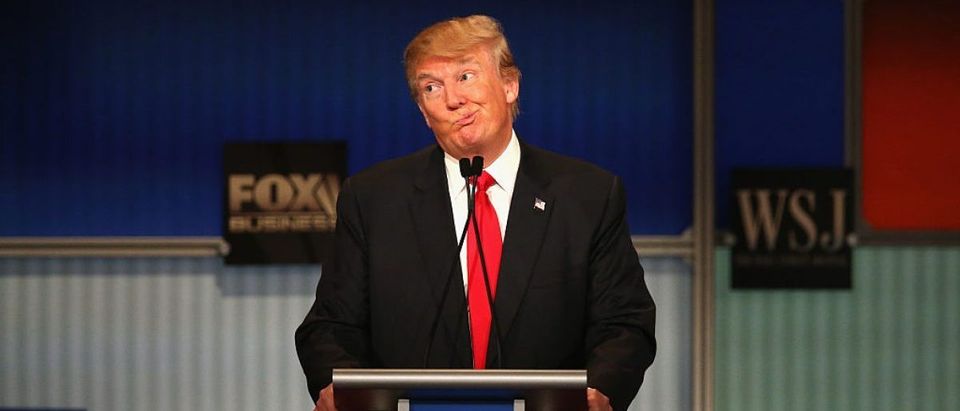The Trump administration, as its predecessors, faces a multitude of challenges – from a defiant and bellicose North Korea to the unremitting chaos in Syria to another seemingly obligatory diplomatic push between Israel and the Palestinians to incessant Russian challenges to NATO.
Given this tumult and when coupled with seemingly unceasing news of allegations of the President’s complicity with Russia, it is easy for other global issues, even those of equal import, to lack the same focus. As all of this transpires, real-world geopolitics marches on with Russia on a decidedly neo-Imperialistic road.
Yet when we think of Russian influence in their own neighborhood, we forget that what transpires can have detrimental, even dire, effects on America’s security, influence, prestige, and leadership. It is not hard to see, however, that what transpires there forms a consistent weaving of anti-Western and anti-NATO policy.
Who is complicit with Russia? Who is being played by Russia? Who is doing Russia’s bidding?
This Russian influence was on display and missed by the media when recently Russian foreign minister, Sergey Lavrov, met with the “President” of the “Republic of Abkhazia,” Raul Khadjimba. They held discussions, including negotiations on their “mutual commitment to strengthening our alliance and strategic partnership in all areas with a special focus on trade, economic and investment ties.”
Of course, both Abkhazia and South Ossetia are internationally-recognized territories of sovereign Georgia. Both are currently under Russian occupation, following the Russian invasion of Georgia in 2008.
Russia quite blatantly and deliberately accentuated this illegal occupation in the same manner it invaded and illegally annexed the Crimean region of Ukraine, its unofficial support for the occupation of Trans-Nistria in Moldova and Nagorno-Karabakh in Azerbaijan—all geostrategic moves to threaten NATO and crack away at Western-friendly nations.
As investigations progress, it is important for the media to look more deeply at Russian influence. There are ethnic communities in America who would utilize their electoral numbers and campaign contributions to shill for Russia, as they tell their Congressman that Nagorno Karabakh is an independent nation or that it is a benevolent Russia protecting its people in Ukraine. The reality is that both are a direct challenge to international law itself and the media must delve into who is saying what to whom.
Lavrov also spoke of the resumption of a railroad transit connection between Russia and Armenia, running through Abkhazia. The negotiations were somewhat of a fraud, given that both areas, for all practical purposes, fall under Russian control—one, for lack of a better term, a protectorate and the other an actual client state.
The practical effect for the United States is that a direct and physical link would exist between Moscow and its numerous military installations and bases built and equipped to threaten NATO. Another even more concerning effect to the U.S. is that Russia and Iran would share a de-facto mutual border – and with both countries at serious odds with Western powers, this could have serious strategic implications for the situation in the Middle East and elsewhere.
While Armenia has not formerly recognized the breakaway territories of Abkhazia and South Ossetia, a formal partnership between Armenia and Abkhazia would indicate overt Armenian support for the separatists, and would no doubt, increase tensions between Armenia and Georgia. This would make Georgia the third country and third close American strategic ally, along with Azerbaijan and Turkey, with formal territorial claims against Armenia.
Are we seeing a pattern here? Anyone?
Russia’s new expansion presents both challenges and opportunities. Currently, the Organization for Security and Cooperation in Europe (OSCE) Minsk Group, co-chaired by France and both Russia and the U.S., remains the longest standing format where both the Russians and the Americans work closely and to some extent effectively together.
By raising the Minsk Group’s profile, the U.S. can engage Russia on a positive agenda and footing, encouraging them to use their significant influence to resolve conflicts rather than create them.
Concurrently, the U.S. can help Armenia to lessen its dependency on Russia and rather work towards building better relations with its neighbors and the world outside of Russia’s orbit. A peaceful resolution of the Nagorno-Karabakh conflict would not only help both Armenians and Azerbaijanis, it would also set a precedent and a blueprint for the resolution of other conflicts in the region through peaceful means.
More importantly, a resolution of the separatist conflicts would bring additional benefits to the people, including greater access to energy, more economic development, less Iranian meddling in the Caucasus, as well as a decrease in the threat posed by Russian military postures, including the placing of nuclear-capable Iskander missiles in Armenia and Crimea.
A peaceful future, absent Russian mischief and accompanied by increased economic prosperity is something from which all the peoples of the region can and should benefit.
Justin Amler is a noted writer and commentator on international issues with special emphases on the Middle East, Eurasia and the former Soviet Union.


